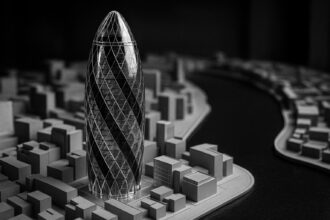Football legend Graeme Souness champions a £350 million project promising 2,000 jobs and £8.4 million annual economic boost in North Lanarkshire, igniting fierce opposition over environmental, archaeological, and governance concerns ahead of a pivotal council vote.
Football legend Graeme Souness is at the centre of a heated controversy surrounding a proposed £350 million development in North Lanarkshire that promises to bring substantial economic benefits to the area. As the director of Orchard Brae, Souness advocates for a project intended to create around 2,000 jobs, particularly following the closure of an Amazon depot in Gourock. However, the development, which is to be constructed on green belt land between Calderbank and Carnbroe, has garnered significant opposition, particularly from local conservation groups.
The Woodhall, Faskine and Palacecraig Conservation Group has voiced its disapproval of the project through public meetings, claiming environmental and community concerns are being overlooked. Souness has raised accusations that some councillors have violated impartiality regulations by expressing predetermined stances at these gatherings. In particular, Labour councillor Michael McBride, known for his opposition to developments on green belt land, has been singled out. Souness asserts, “I have evidence he is not alone in going to objectors’ meetings and declaring a stance on it, which should automatically exclude them from taking part in a vote on this application.”
Despite Souness’s insistence on the need for a transparent process, the conservation group’s spokeswoman maintained that councillors attended merely to observe and not to engage in debate. This dispute highlights the complexities of local governance, especially as North Lanarkshire Council grapples with severe budgetary constraints, including £57 million in cuts over the next three years due to the recent Scottish budget settlement. These financial pressures complicate the council’s decisions regarding lucrative developments versus community opposition.
The stakes are high, as the potential economic impact of the Orchard Brae project could lead to significant revitalisation in the area, contributing an estimated £8.4 million annually in economic benefits and reducing unemployment and homelessness. While Souness emphasises the jobs and regeneration the project could provide, critics, including Scottish Conservative MSP Graham Simpson, have expressed deep concern over the environmental implications and the loss of valuable green space. Simpson has urged Souness to reconsider the plan, citing the cultural and ecological importance of the green belt.
Additionally, historical considerations are at play, as crucial archaeological sites could be at risk should the development proceed. The opposition is not merely grounded in political or economic concerns but is intertwined with a broader community narrative about preserving local heritage and environmental integrity.
As the council prepares for a decisive vote on June 12, the clash between development ambitions and community values continues to intensify. With voices from both sides growing louder, the potential for compromise or conflict remains uncertain, but the implications of the council’s decision are likely to resonate far beyond this immediate locality.
Reference Map:
- Paragraph 1 – [1], [2]
- Paragraph 2 – [1], [6]
- Paragraph 3 – [3], [4], [5]
- Paragraph 4 – [1], [2], [6], [7]
Source: Noah Wire Services
- https://www.dailyrecord.co.uk/news/scottish-news/graeme-souness-demands-councillors-excuse-35317298 – Please view link – unable to able to access data
- https://www.dailyrecord.co.uk/news/scottish-news/rangers-legend-graeme-souness-slammed-11507209 – This article discusses the opposition faced by Graeme Souness’s proposed housing development in North Lanarkshire. A pressure group, Save Woodhall and Faskine, plans to hold a public meeting to discuss the project. Orchard Brae, the company behind the development, intends to invest approximately £410 million, creating 930 direct jobs and an estimated 2,500 temporary construction jobs. The development aims to provide significant regeneration benefits to the surrounding communities, equivalent to £8.4 million per annum, through reductions in unemployment and homelessness.
- https://www.bbc.com/news/uk-scotland-scotland-politics-38378972 – North Lanarkshire Council has announced a need to find nearly £35 million in cuts following the Scottish budget. The council is considering increasing council tax by up to 3% to balance the budget. This follows similar announcements from Glasgow and Fife councils, highlighting the financial challenges faced by Scottish local authorities due to the budget settlement.
- https://www.inkl.com/news/north-lanarkshire-council-leader-blasts-scottish-government-over-budget-settlement – Jim Logue, leader of North Lanarkshire Council, has criticised the Scottish Government over its budget settlement, which imposes £57 million in cuts over the next three years. Logue urges SNP councillors, MSPs, and MPs to work together to reverse these cuts before the budget is passed in Parliament, emphasising the need for a no-cuts budget to support local communities.
- https://www.heraldscotland.com/news/23831838.need-know-north-lanarkshire-councils-u-turn/ – North Lanarkshire Council has reversed its decision to close 39 local facilities, including swimming pools, libraries, and community halls, following public outcry and petitions. The council leader, Jim Logue, stated that despite the U-turn, the council’s financial situation remains dire, attributing the challenges to insufficient support from the Scottish Government.
- https://www.scotsman.com/news/politics/msp-urges-graeme-souness-to-reconsider-greenbelt-housing-plan-2509493 – Scottish Conservative MSP Graham Simpson has urged Graeme Souness to reconsider plans to build thousands of houses on greenbelt land in Lanarkshire. Simpson highlights the environmental and cultural significance of the site and its importance to the local community’s health and wellbeing, expressing concern over the potential loss of open space and woodland.
- https://www.dailyrecord.co.uk/news/scottish-news/graeme-souness-backed-housing-project-25563350 – An archaeologist has warned that numerous structures dating back hundreds of years will be destroyed if planning permission is granted for the Europark housing project in Lanarkshire. The development, backed by Graeme Souness, faces opposition due to potential destruction of historical remains and environmental concerns.













